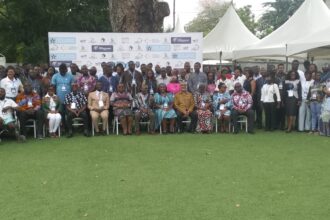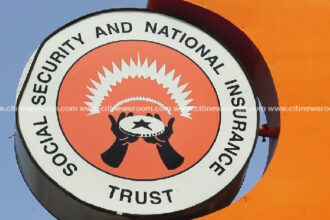Livelihood and Environment Ghana (LEG), an environmental and human rights NGO, has submitted its inputs to the Minerals Commission (MinCom) as part of ongoing efforts to amend the Minerals and Mining Act, 2006 (Act 703).
The organization, established in 2004, focuses on research, advocacy, mineral governance, and the promotion of community rights and environmental justice.
The move was part of activities being implemented by LEG with support from STAR-Ghana Foundation.
LEG’s submission aims to ensure that the revised legislation better supports sustainable livelihoods, especially for marginalized communities affected by mining operations.
The Minerals Commission is currently reviewing Act 703 to reflect evolving challenges in the mining sector, including environmental concerns and equitable resource management.
Among the proposed changes is the call to harmonize Sections 17(1) and 99(6) of the Act and its 2015 Amendment (Act 995), which currently present conflicting provisions. The aim is to ensure clarity and consistency in the legal framework.
A major highlight is the recommendation to cap mineral royalty rates between 5% and 10% of total revenue. LEG argues that leaving rates solely to ministerial discretion poses financial risks and undermines best practices in resource governance.
In a bid to boost Ghana’s economy and stabilize its currency, LEG made a proposal to require expatriate mining personnel to make a minimum financial contribution before transferring money abroad. Drawing inspiration from Sierra Leone, this initiative seeks to bolster the banking sector and ease cedi-dollar tensions.
“In Sierra Leone expatriate personnel and evens citizens pay $ 25 in and $ 25 out security fee whenever they travel out of the country or come into the country.
“Again, expatriates will be compelled to do saving which will boost our banking sector and improve the economy. It will also reduce cedi-dollar tensions.”
The organization also raised issues over land resettlement, calling for clear, Ghana-specific definitions of suitable alternative land. The amendment proposals also touched on land compensation issues.
To reduce disputes, LEG pushes for the establishment of a standardized annual land compensation rate, determined by the Land Valuation Board and Ministry of Food and Agriculture. Currently, compensation payments range widely from GHS 400 to GHS 1,000, sparking tensions between mining companies and local landowners.
According to the Executive Director of LEG, Mr Richard Adjei- Poku, the proposed reforms, if adopted, are expected to strengthen legal safeguards, ensure fair economic benefits, and foster more harmonious relations in mining communities across the country.
By: Mohammed Suleman/ Publicagenda.news














